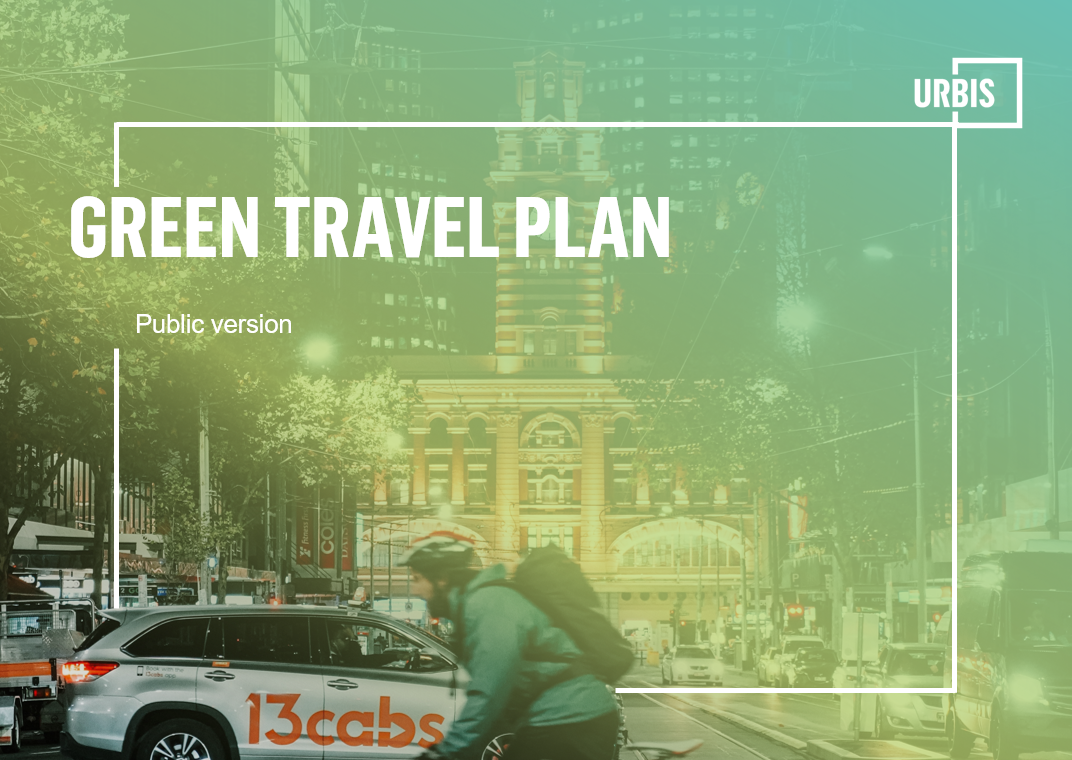Our Green Travel Plan
“Having honest conversations about our emissions is the first step in reducing them
The Urbis Green Travel Plan is a proactive step in reducing the emissions resulting from transport in our business operations. Since 2022 Urbis has been proud to be a carbon-neutral accredited company.
As part of maintaining our carbon-neutral accreditation we have committed to undertaking a Green Travel Plan and reducing our emissions by 25 % raw (irrespective of growth) by 2029.
At Urbis, we believe having honest conversations about our emissions is the first step in reducing them. Our people are working together to reduce travel emissions associated with our business operations.
What did the data say?
The big headlining number is 377 tonnes annually: That’s how much CO2 we emit each year just associated with our travel. The vast majority of our emissions relate to air travel. But we as a company took the decision that we couldn’t just focus on our air travel.
We had to look at how we commuted and also how we travel to meetings and site visits. Here’s some of the nuance that we discovered in the data:
- Mode splits: Across all our offices, just 11% of people drive to work. There is significant variation in the data with our Geelong office standing out as the ‘cycling to work office’ (at 46%) and our Melbourne office standing out as the ‘walking to work office’ (at 12%). Pleasingly, public transport was the backbone of commuting to work across the vast majority of Urbis’s offices.
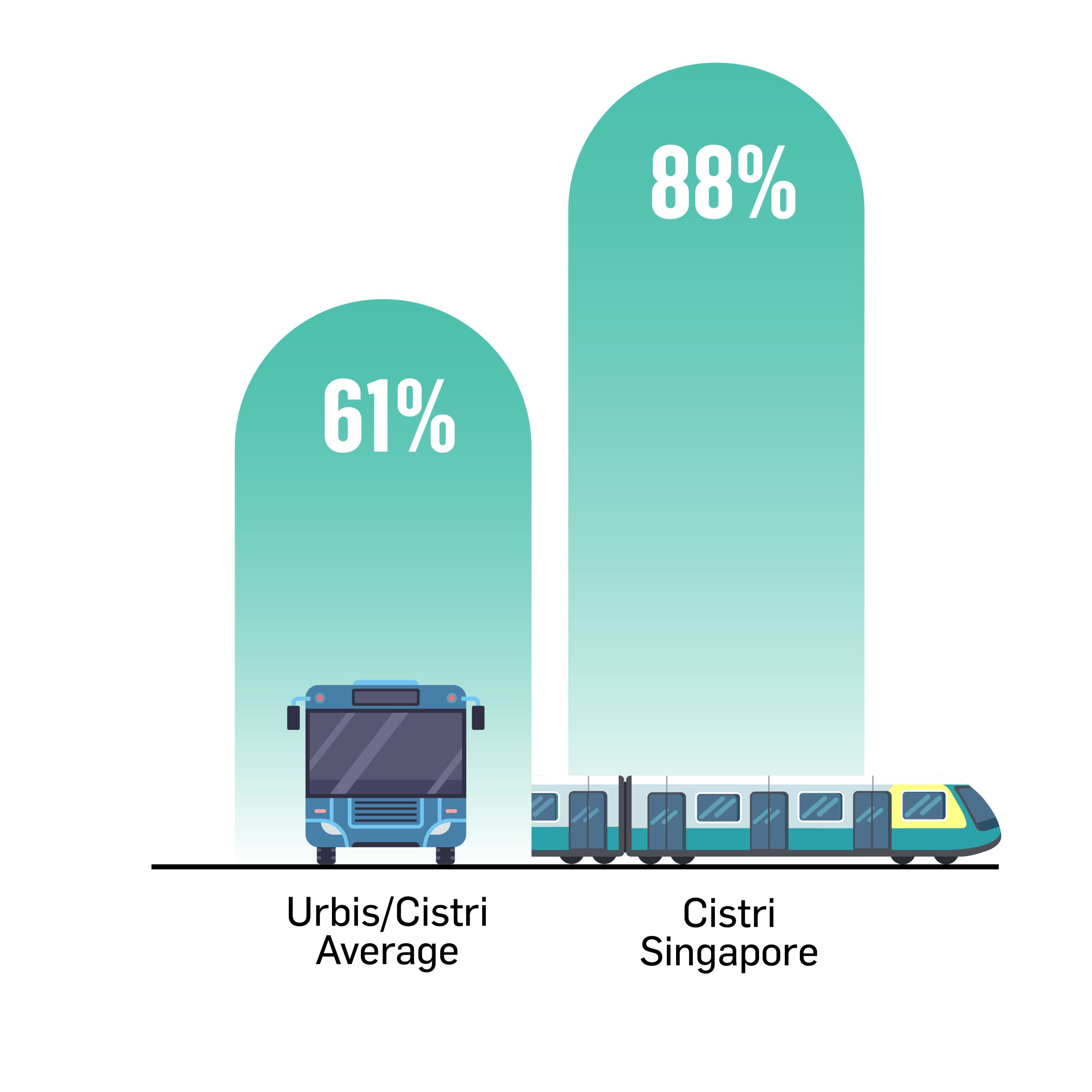
- The cost of parking influences driving: Parking costs play into how much people drive. The office that has the cheapest parking stations available nearby (Gold Coast) has the most amount of driving to work (89%) and the office with the most expensive parking stations nearby (Sydney) has the least (3%).
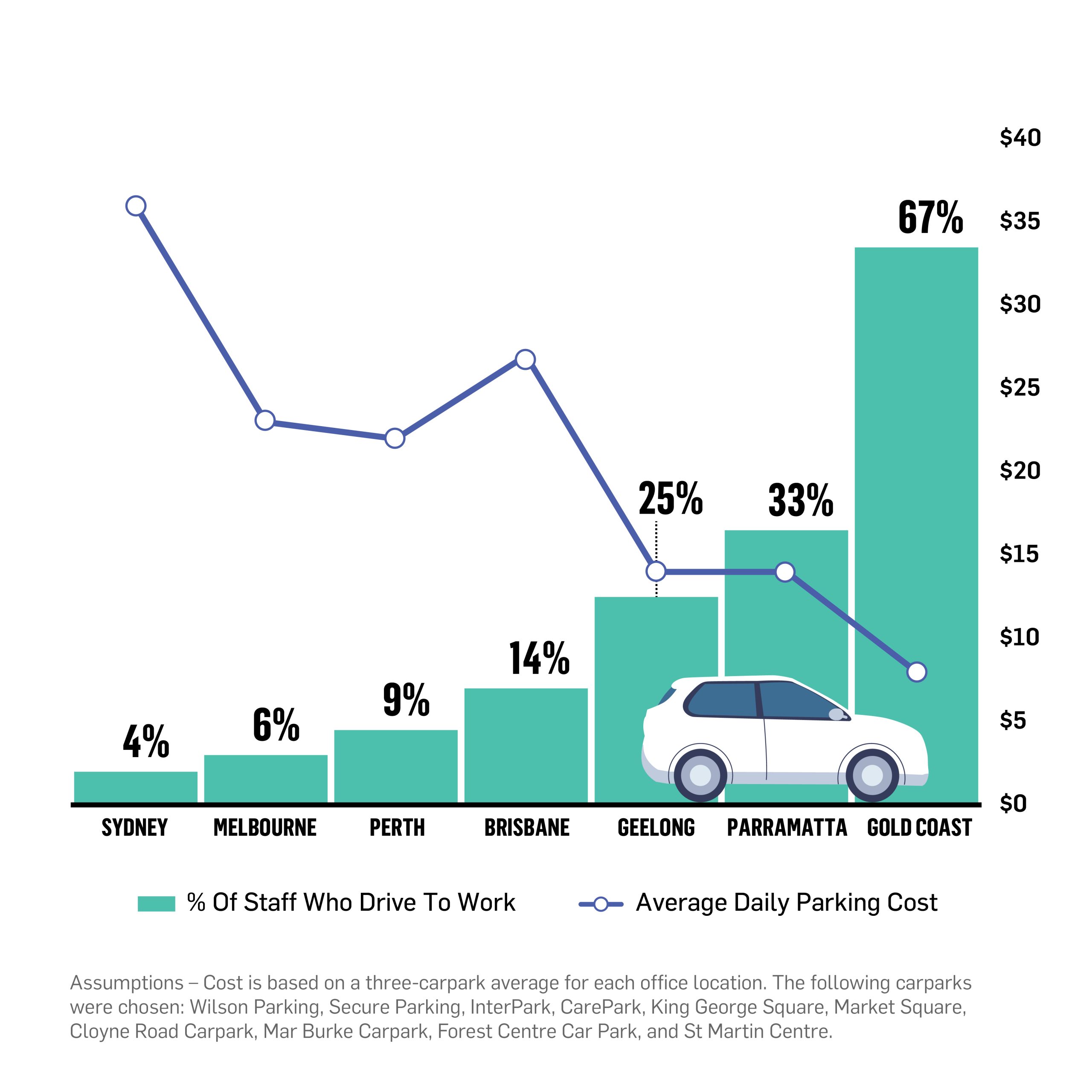
- Work from home: Our major work-from-home days are unsurprisingly Monday and Friday, where about 20% of the workforce chose to stay home. It speaks to the positive office culture of our organisation that numbers were much lower on other days with strong attendance in the office.
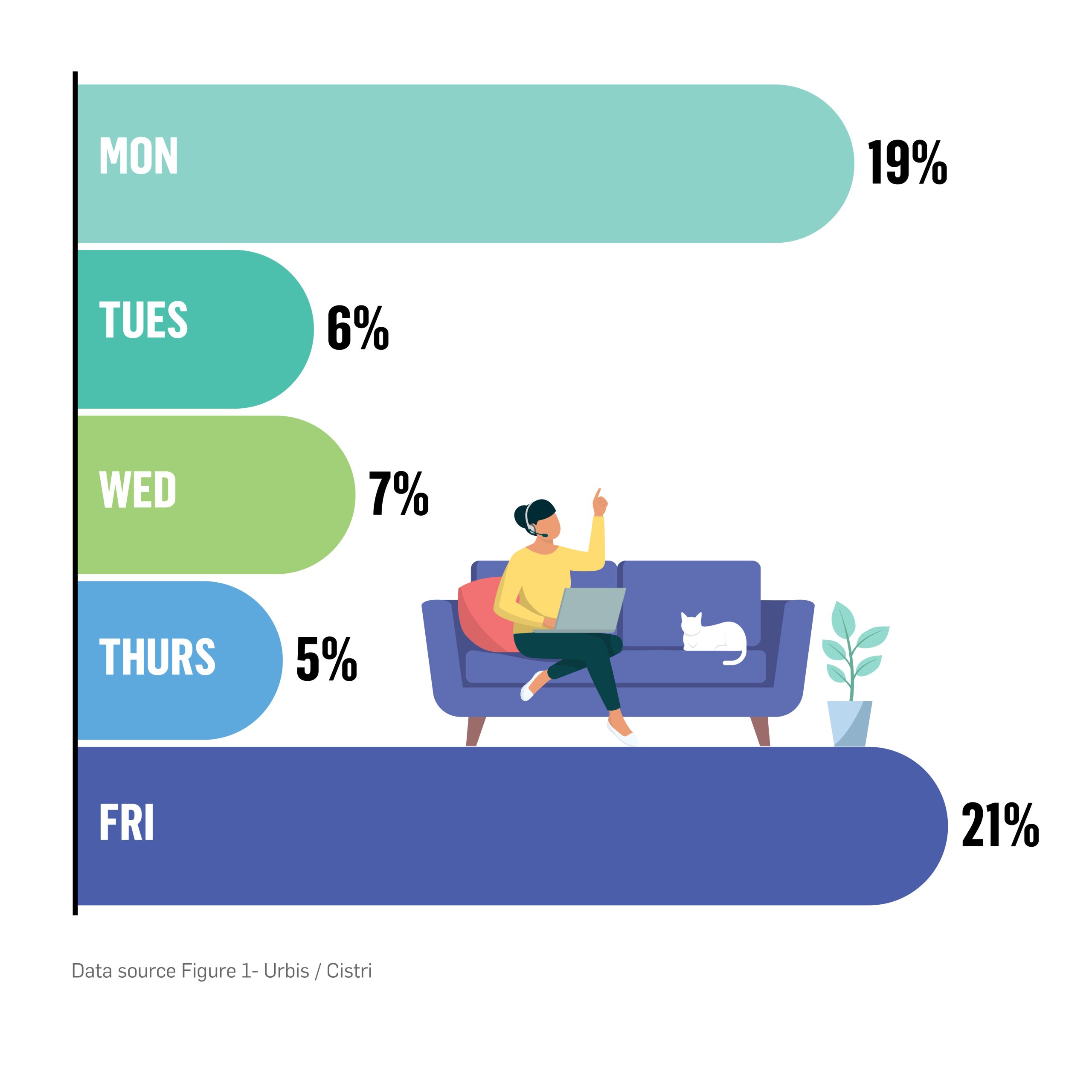
- Gender and working from home: How we commute is a gendered issue. Women disproportionately bear the burden of care (reference 1) and this is likely to feed into notably more women at Urbis working from home (57% of all WFH) than their male counterparts. Something for us to be aware of and to consider when designing flexible working policies.
- Gender and active transport: The proportion of women at Urbis walking and cycling to work is markedly low. Men are much more likely to walk and cycle to work. 69% of all active transport trips to work are made by men. The skew towards men is particularly notable for cycling trips, of which 80% of all trips are made by men.
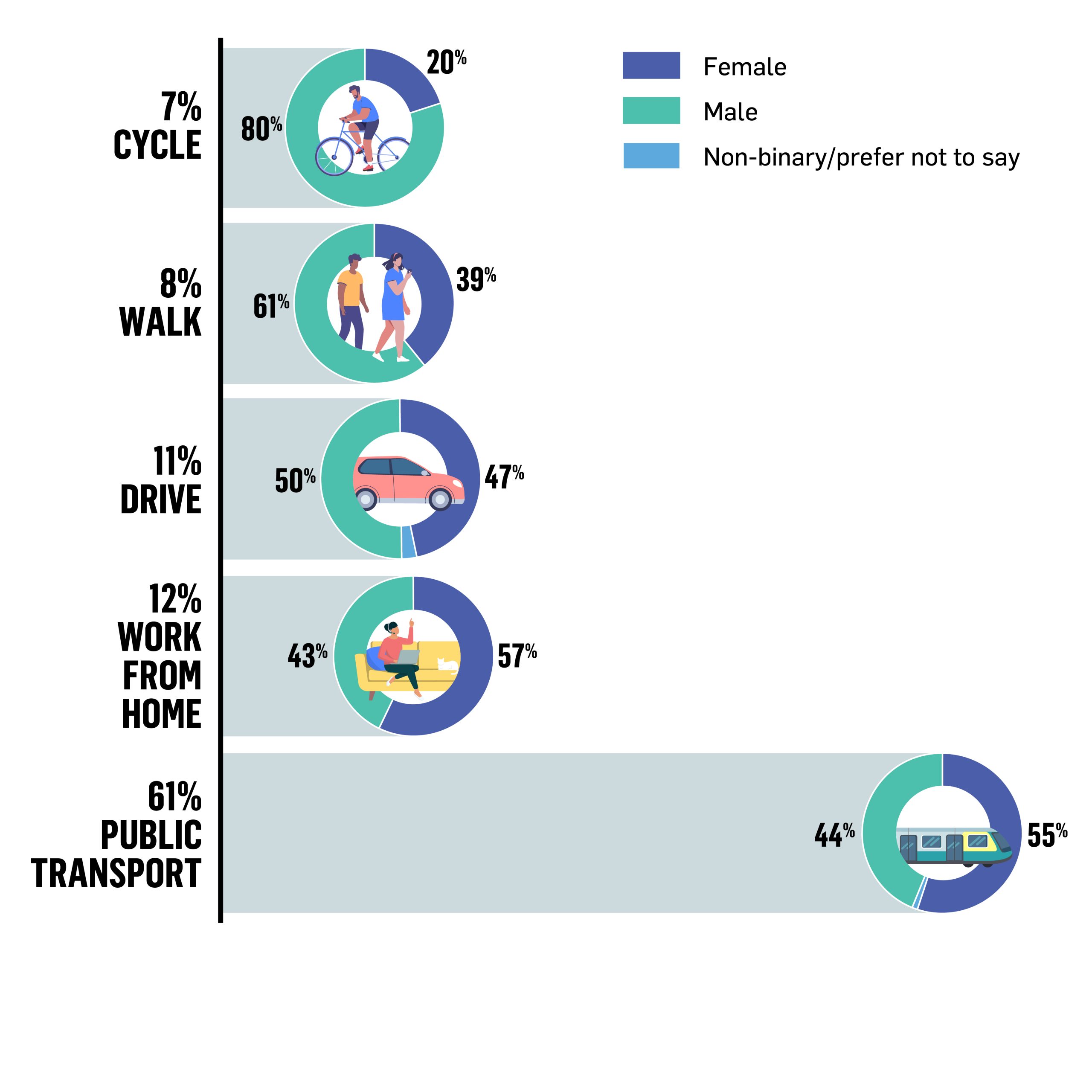
Reference 1) Department of Prime Minister and Cabinet, 2023, National Strategy to Achieve Gender Equality – Discussion Paper
Where to from here?
- Reduce air kilometers
- Internal conferences should be held in a location that results in the lowest amount of air travel overall.
- Targeted reduction of non-client related air travel
- Provide non-taxi/car travel options for meetings and site inspections:
- Exploring opportunities with Beam for Business for staff to book out e-bikes and e-scooter for meetings
- Trial an e-bike fleet for some offices
- Enhance education and options available for non-car commuting:
- Support salary sacrificing of e-bikes/bikes
- Establish a bike-ambassador program in offices
- Urbis no longer provide car parks to shareholders (since 2019). Going forward, Urbis will not offer car parks as part of any employment contract negotiations with staff.
Get in touch
Reach out to our Green Travel Team: Andy Johnston, Director QLD; Manesha Ravji, Associate Director VIC; or John Parnell, Senior Consultant NSW to learn how your organisation can reduce emissions through encouraging planet-friendly travel practices. You can also get in touch with our sustainability experts to discuss your broader sustainability goals.
You can take a look at our Green Travel Plan here:

